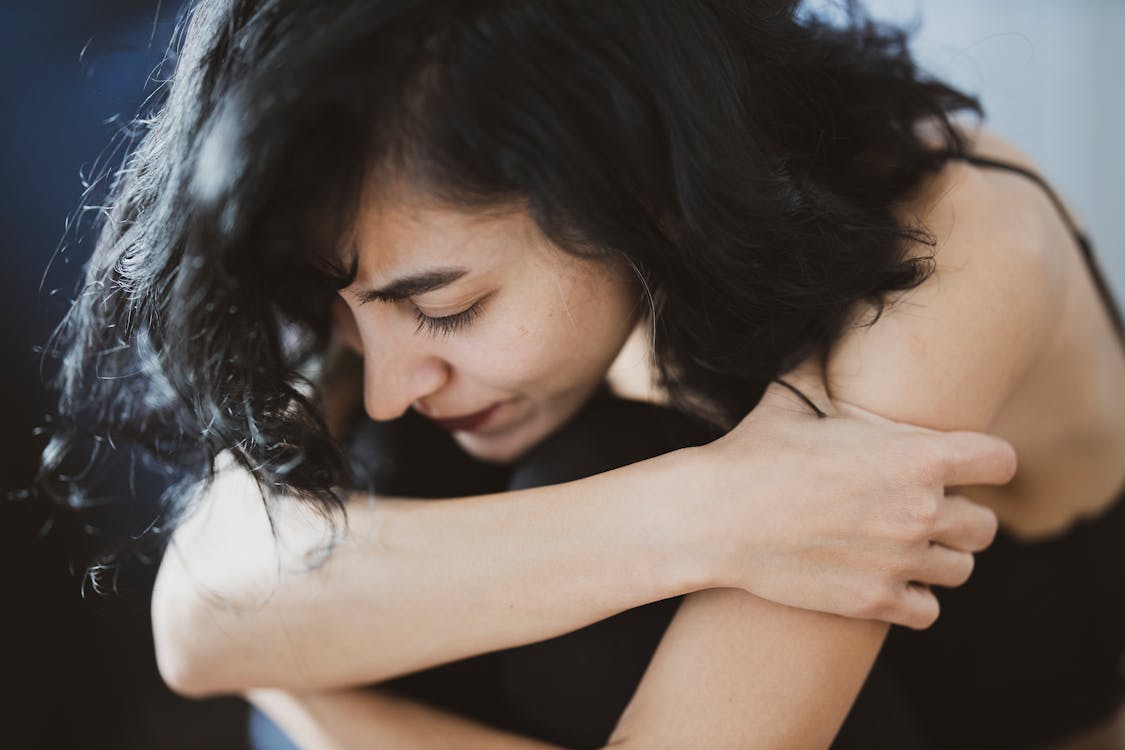
Since anxiety relates to fear, it’s common for it to trigger your fight-or-flight response. It’s such an innate part of our biology that it’s vital we go through it for our survival. However, once it becomes overwhelming and there’s no known trigger around, you may have free-floating anxiety.
It can interfere with your life, so it’s important to understand more about the disorder, what may cause it, and ways you can learn how to calm down. This way, you can get back to living a stress-free life.
Quick Breakdown

It can be a frustrating and terrifying notion when anxiety builds up for seemingly no reason at all, so we understand if you want some quick answers. We go into more detail later on, but the following addresses some of the more common concerns you may have.
What is meant by free-floating anxiety?
Free-floating anxiety describes the sense of uneasiness or nervousness that doesn’t have any root causes. In other words, it’s feeling anxiety without obvious triggers for it.
Which anxiety disorder is associated with free-floating anxiety?
Typically, this type of anxiety is associated with a generalized anxiety disorder (GAD). People who have that disorder tend to have feelings of this anxiety rather frequently.
Can anxiety make me feel like I’m floating?
Many with anxiety have experienced the sensation of floating. It’s often referred to by healthcare professionals as “depersonalization“, or feeling disconnected from your life and surroundings.
How do I get completely anxiety free?
It may take some time, but it is possible to not just cope with anxiety, but also work to eliminate it. This can be done through various factors such as supporting a more positive mood through the likes of yoga and cardio exercise, focusing on a hobby that makes you happy, and even talk to a healthcare professional for more methods like therapy.
Free-Floating Anxiety – Ultimate Guide
There is much about free-floating anxiety to learn, and the more you know, the better you may feel about your chances of managing and completely treating your condition.
What is an Anxiety Disorder?
Before we get too far into speaking about a specific type of anxiety, we feel it’s best to address the subject overall. This way, you’ll have more of the knowledge tools you need to combat the condition.
So, having anxiety and dealing with an anxiety disorder are not the same thing.
Everyone should feel a bit of anxiety at certain points in their life since this fear or uneasiness is important to keep us safe from dangerous situations. It is when you feel frequent, intense anxiety about everyday situations or about nothing at all that this worrying is less of a normal biological response and more of a disorder.
This is because it can start to interfere with your daily life, getting in the way of you performing tasks like driving or just leaving the house at all. It can get in the way of personal relationships, your job, etc.
There are several types of anxiety disorder, and people may also suffer from more than one. Sometimes, medical problems chronic pain, respiratory issues, etc. can lead to anxiety and the onset of a disorder. Other times, the exact cause may be unknown.
Coping with Anxiety
Everyone has a way of coping with things, and anxiety is no different. When we talk about coping, we talk about helping you find ways to get through the anxiety so it doesn’t completely impact your daily activities. This isn’t a “cure”, so to speak, but these techniques may make your anxiety more manageable:
- Exercise: Getting more active can help your body release more endorphins. At the same time, it can burn off stress hormones, leaving you feeling calmer.
- Yoga/Meditation: Both of these acts work to help you control your breathing, and breathing better, especially during anxiety attacks, can help manage and lessen the intense symptoms.
- Seeking Help: Of course, you can always reach out for help. This can be talking to a friend, loved one, or a professional. Sometimes speaking about your anxiety rather than running from it can help you learn to cope.
How to Stop Anxiety
Rather than just coping with it, many of you may be more eager to learn how to stop anxiety. There’s no instant solution, of course, but there are ways that you may leave anxiety completely in the past.
You can opt for a quick solution if you’re anxiety is worsening, or you’re experience an anxiety or panic attack. This includes deep breathing techniques or self-talk, which requires you to talk yourself out of it, so to speak.
Lifestyle changes also work well in helping you learn how to calm down and stay calm. This can be a host of things such as seeking regular therapy, changing your diet and exercise habits, or even seeking a change of environment if your surroundings are heightening your anxiety.
Again: no one has one set way of managing and stopping anxiety, so it’s best to work through some solutions to find the one that best suits your needs.
Symptoms of Free-Floating Anxiety

Now that we understand anxiety in general a little better, let’s touch more on free-floating anxiety, starting out with the symptoms you may feel.
There are both mental and physical symptoms that might manifest with this type of anxiety.
When it comes to mental symptoms, you can experience:
- Stress
- Nervousness/uneasiness
- Feelings of dread/fear
- Restlessness
- Panic
- Anxiety
- Jitters
- Disruption in sleep patterns
If there are physical symptoms, these may be associated with GAD:
- Muscle tension
- Profuse sweating
- Twitching/shakiness
- Light-headedness
- Unexplained aches/pains (e.g. headaches, stomach aches)
Causes
There is no exact known case of free-floating anxiety. Instead, professionals have worked on finding common factors that can contribute to the development of this type of anxiety:
- Life Experiences: Certain life events can cause frequent anxiety. This can be a traumatic event that occurred that leaves you feeling more anxious every day even if there is nothing around to trigger you.
- Upbringing: Sometimes nurturing can play a role in you getting anxiety. For instance, perhaps you weren’t given as much freedom to explore as a child due to a guardian that worried all-too-frequently. Such worrying can bleed off into you, leaving you growing up with more apprehension about your surroundings.
- Genetics: On the other side, nature can also come into play. There has been numerous research over the years finding a connection between people that have anxiety with relatives that had much of the same.
Diagnosing the Condition
Diagnosing your free-floating anxiety is much the same as with diagnosing any anxiety condition. You can always use this guide as a way to understand the condition, but it should not serve as a way to diagnose anything. Seeking professional help is the proper way to go.
First, a healthcare professional will launch an assessment. This will include some of the standard question-and-answer sessions that will help them understand your symptoms, how long they have been persisting, and how they affect your daily life. The doctor will also want to know just how severe the symptoms are.
Doctors may also compare your symptoms to the criteria set by the Diagnostic and Statistical Manual of Mental Disorders (DSM-5).
Alongside that, you will more than likely undergo a complete physical exam. This includes have some lab work done. This way, a doctor can rule out any other health concerns such as chronic pain that may be causing your anxiety.
A doctor can also address both your medical history and your family history if there are other causes of anxiety.
Treatment Options
There are many effective treatment options for free-floating anxiety. That’s why it’s important to get an accurate diagnosis to rule out other conditions beforehand.
Once you receive your diagnosis, you can focus on finding the right treatment plan that works best with your needs and lifestyle. The two main options are therapy and medications.
Therapy
Therapy is a common and helpful treatment option to explore. More specifically in this case, psychotherapy.
Cognitive behavior therapy (CBT) is perhaps the most effective and recommended form of psychotherapy for this condition. This focuses on helping you change the way you think such as addressing the negative thought patterns that can contribute to your anxiety.
Adjusting your thinking patterns can also help you develop better problem-solving skills so that your coping methods can improve as well.
Besides the thought process, CBT works on helping you confront your fears that can make your anxiety symptoms worse. It can further guide you to learning ways to relax, which can then help you center yourself when the anxiety or even an anxiety or panic attack strikes.
There is far more emphasis in this type of therapy to understand what’s happening now rather than what happened in the past. It’s a good way to learn to move forward so that you may begin to triumph over your anxiety rather than just push it down.
From there, you may even undergo dialectical behavior therapy (DBT). This is a different interpretation of CBT, and it was originally made to help people with borderline personality disorder (BPD). However, it can be successfully used by individuals with anxiety, especially if it can lead to frequent panic attacks, lack of sleep, and depression.
DBT can help you regulate your emotions more effectively, urging you to better recognize the more intense emotions you can feel that may make your anxiety worse.
Furthermore, this type of therapy uses core mindfulness that leads you to slowing down and becoming more in-tune with yourself to have more useful coping skills.
DBT also focuses on teaching distress tolerance skills. This helps you manage current stressful situations like anxiety and panic attacks, understanding how to self-soothe and calm yourself so your symptoms don’t worsen.
No matter what type of therapy you undergo, there are options in how you go about it too that can further make coping and managing your anxiety a more reachable goal.
You can see an in-person therapy, go through group therapy if you feel talking it out with others can help, or even explore online or phone therapy.
Medications
If need be, even though you may be attending therapy sessions or even going through some at-home self-care to cope, a doctor may prescribe you medication. This medication is simply to help you better cope with the symptoms that come with the condition, especially if they interfere with your daily life.
Some of the most common medications you may be prescribed if your anxiety has led to depression are selective serotonin reuptake inhibitors (SSRIs). These are antidepressants and include medications like Zoloft, Prozac, and Celexa.
If not antidepressants, then your doctor can prescribe with you some anti-anxiety medication. BuSpar is a common one that can be prescribed to treat anxiety, and it may help treat some symptoms such as rapid heartbeat and trouble sleeping. It can also allow you to better relax and think clearly.
For more acute cases of anxiety, doctors can prescribe benzodiazepines. These are used for a variety of different conditions, but they offer a calming effect that can relax the mind and body. The medications include Xanax and Valium that are known to be given to people suffering from anxiety.
However, these aren’t prescribed lightly seeing as consistent, therapeutic use can lead to dependence in some people. So, it is more recommended as a short-term solution to treat serious anxiety symptoms.
Preventative Measures
When we talk about preventing free-floating anxiety, we are more focused on what you can do to perhaps lessen the chance of experiencing an attack or undergoing the symptoms that can come with the condition.
One preventative measure you can do is exercise.
Exercise is known to help treat anxiety. It can serve as a good distraction from whatever may be causing you to feel anxious. Alongside that, it cuts down on muscle tension and stress. Consistent exercise may even help you feel better so that you may combat the symptoms and regulate your emotions with ease over time.
Besides stabilizing your mood, exercise even work to improve your sleep. As sleep disturbance may be a symptom of your anxiety, it is yet another way that working out can lead to prevention.
You can also work on some relaxation techniques as they can lead to lowering both stress and anxiety levels. These techniques include deep breathing exercises and meditation.
Practices like these can also assist you in clearing your mind of fretting over your anxiety as constantly thinking and worrying about it can worsen it in the process.
Alongside adding in healthier routines, you may want to work on eliminating some unhealthy routines. For instance, smoking.
It’s true that nicotine can offer a temporary feeling of relaxation, but it is only that: temporary. Since it does chip away at your health and finance since the cost of nicotine isn’t cheap, it can lead to you worrying about these issues. Thus, it can increase your anxiety.
Another thing to think about is your caffeine intake. If your anxiety is causing jitters, then it is best to avoid the thing that can make jitters worse.
Who is at Risk?
A good way to understand an anxiety disorder is by knowing the risk factors associated with it. Many of these are associated with GAD, but they can be applied to anxiety alone.
Just keep in mind that a risk factor is just a risk of developing a condition, not a guarantee. You may share in some of the risks laid out below, but that is not to mean you will have anxiety, just that your chances are higher than others.
Genetics
Although there’s been no official discovery of a “gene” that can lead to anxiety, there is a strong correlation of people who have anxiety share the condition with someone else in the family.
The risk is also higher if there are close family members that suffer from other mood disorders.
Life Events and Trauma
Certain life events and trauma can lead to anxiety too.
For instance, perhaps you’ve lost a job or had another financial hit. Maybe you have just gotten out of a serious relationship or lost a friendship/family member.
You could have trauma from your childhood as well.
When it comes to free-floating anxiety, events like these may have caused enough stress that anxiety-related symptoms can come up and strike you when everything is seemingly going okay in your life. These can serve as a root cause that leads you to develop some layer of pressure.
Medical Conditions
Certain medical conditions can make the development of anxiety greater.
Individuals who suffer from chronic pain are consistently under pressure and stress both physically and mentally. This can take a toll on their emotions, and it may lead to feelings of anxiety.
In this case, suffering from random bouts of anxiety without any trigger can become more common after a while of dealing with a prolonged illness.
Takeaway
Free-floating anxiety can be a difficult and troubling condition to endure. It can lead to mild symptoms such as worrying and nervousness, but it can also lead to serious symptoms like panic and anxiety attacks. These attacks can leave you feeling in pain or true fear for your life.
As this type of anxiety can come up without any triggers, it can make going through your daily activities a real struggle. When this happens, it’s important to seek help to receive an accurate diagnosis and ensure that you will know the proper routes to take for treatment.
It’s our hope that this guide can help you understand the condition more so that you can find not only professional help, but you can also seek greater ways to cope so that you can eventually find yourself free from the clutches of anxiety.








